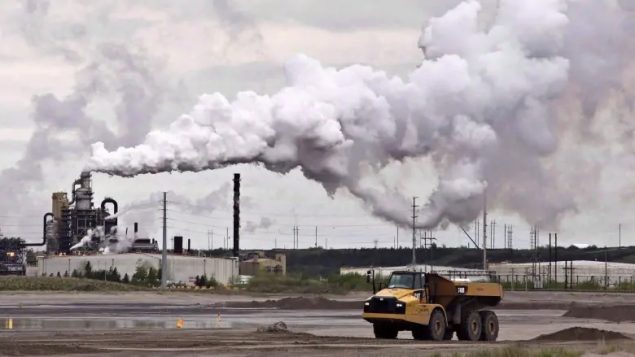A report by a leading Canadian think tank is calling on the Liberal government to clear up confusion over its strategy for implementing clean fuel standards across the country.
In a report issued by the C.D. Howe Institute Thursday, author Benjamin Dachis argues federal policymakers must examine the inherent limitations and potential economic costs of a clean fuel standard system.
Unlike current programs that promote the use of ethanol or biofuels, the Liberal government’s proposed clean fuel standard takes a much broader view of the overall lifecycle of emissions: from production site to refining and transportation to end combustion, Dachis writes in the report entitled “Speed Bump Ahead: Ottawa Should Drive Slowly on Clean Fuel Standards.”
Ottawa is following the lead of British Columbia and wants to have its clean fuel standard in place by 2019.
Significant costs for oil and gas sector, manufacturing

Canada’s Clean Fuel Standard could cut 30 million tonnes of carbon pollution by 2030, says a clean energy think tank.
“A clean fuel standard (CFS) could have a large economic cost relative to pure emissions pricing, especially on energy-intensive, trade-exposed sectors,” said Dachis. “The federal government has released neither a clear rationale for the proposal nor an economic costing of it.”
Furthermore, Dachis argues the federal government has not made an explicit case for a CFS as opposed to other means of reducing emissions.
“A price on emissions — like a carbon tax or cap and trade regime — is the lowest-cost way to reduce emissions in the long term,” Dachis says. “A CFS only makes sense if it is not politically feasible to impose a carbon price high enough to effectively reduce emissions.”
Dachis says he wants the federal government to complete and release its own estimates of the economic cost of a CFS. If the economic cost of the proposed CFS plan is higher than a price on emissions, the federal government should have specific cost/benefit reasons to justify a CFS in addition to a price on emissions, Dachis argues.
He also warns that Ottawa should be mindful of policies that are effective when targeted at households, but create additional burdens for the oil industry and manufacturing.
Manufacturers alarmed
While environmental groups have welcomed the federal government’s clean fuels strategy as “one of Canada’s most important climate change policies,” it has irked many Canadian business groups.
“The C.D. Howe report raises alarming concerns regarding the impact of CFS on Canadian businesses,” said in a statement Dennis Darby, President & CEO of Canadian Manufacturers & Exporters. “It reaffirms CME’s earlier findings that CFS could have far reaching consequences on manufacturers, specifically those in trade-exposed sectors.”
Manufacturers are calling on the government to work closely with industry to conduct a full review and economic analysis of the potential impact of the CFS before moving further forward, Darby said.
“CFS will impact industry well beyond transportation fuels to include stationary, home and industrial use fuels, and these impacts are not well understood because of the lack of publicly available analysis completed to date,” Darby said, adding that CME supports government efforts to reduce greenhouse gas emissions.







For reasons beyond our control, and for an undetermined period of time, our comment section is now closed. However, our social networks remain open to your contributions.